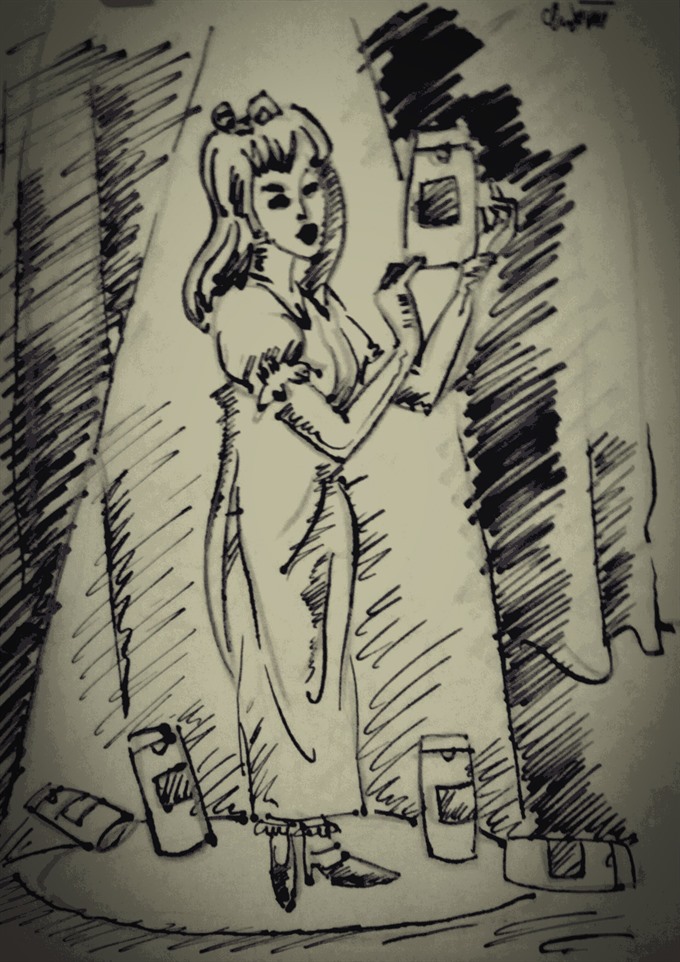 Talk Around Town
Talk Around Town

Your favourite actress “reveals” that she is using a skincare product or a lipstick that makes her “confident and beautiful anytime”. A famous mother shares on her Facebook page that she finds a mosquito repellent very useful to protect her children, particularly when a dengue fever epidemic is raging in the city. Additionally, they are generous enough to share the links where you can easily buy the products. What would you do?
 |
By Bích Hường
Your favourite actress “reveals” that she is using a skincare product or a lipstick that makes her “confident and beautiful anytime”. A famous mother shares on her Facebook page that she finds a mosquito repellent very useful to protect her children, particularly when a dengue fever epidemic is raging in the city. Additionally, they are generous enough to share the links where you can easily buy the products. What would you do?
I have to confess that I have been happy to follow their lead or befriend such influencers, at least on social media. And I have bought some of the products.
But I had a rude wake-up call last month when reports surfaced about the seizure of about 14,000 cosmetic products of unidentified origin at the premises of a company in Hà Đông District, Hà Nội.
A dozen celebrities including famous actresses, models, singers and others are reportedly brand ambassadors for the company – TS Việt Nam Natural Company Limited (TS Group).
The company failed to show any legal documents proving the products’ origins, while their labels said they were “Made in News Zealand” or “Made in Korea”. Many such “imported” products were found to be packed in Hà Nội’s Hà Đông District.
Knowing that women like to get beauty tips from celebrities, company director Nguyễn Thu Trang invited many to promote its products.
Danviet.vn reported that there are about 200 clips on celebrities advertising the company’s products apart from Facebook posts where they “share” their endorsements.
Celebrity marketing has proved its worth over many, many years. Studies have shown that consumers show greater recall of products that have been endorsed by celebrities – regardless of whether they are actual fans, according to guidedselling.org.
Our brain recognises celebrities just as it recognises people we actually know. The effect is that, if consumers happen to be fans, they place a higher value on products that the celebrities are endorsing; it is as if they are receiving advice from a valued friend.
With celebrities vouching for or promoting their products, brands can increase awareness, trust and familiarity, which are important variables in the purchase decision-making process.
Consumers feel more sympathetic towards a brand if its products are promoted by a celebrity they admire or relate to. It is said that subconsciously, people believe that purchasing a product that’s promoted by a celebrity they admire will allow them to emulate the celebrity’s desired traits or attract similar people into their lives.
I am not sure this is entirely true, but there is bottom-line evidence that the ploy works.
The other side
But what are the consequences if the celebrities involve in promoting illegal or spurious products?
In the case of TS Group, people are questioning if the celebrities understood anything about the products they were using and/or promoting? Did they ask for legal documents relating to the products when signing advertising contracts with the company?
Some ambassadors of TS Group’s products have made a public apology saying they did not know that the products were illegal. Some said they were responsible and serious in deciding to be product ambassadors because they personally used the products. Others refused to comment on the scandal.
Lê Minh Hải of the Royal Law Firm told Infornet.vn that advertising unreliable products was one of false advertising activities regulated in Article 109 of the Commercial Law 2005 and Article 8 of the Law on Advertising.
However, it’s difficult to identify the responsibility of brand ambassadors who promote unreliable products because the matter is not regulated clearly, he said.
“A key factor to identifying their responsibility is whether they were aware or not about the authenticity of the products,” he said, adding that they were not experts who could decide on the veracity of products even if they were shown documents to that effect.
“I think that stricter laws and stronger public opinion might make celebrities more careful and responsible when deciding to be brand ambassadors.”
There has been explosion of advertising on all kinds of media for all kinds of products, from consumer goods to medicines, and celebrities are in the thick of this promotional activity.
Just as a seller is responsible for his or her products, celebrities who selling their popularity for which we, the fans and consumers, ultimately pay them, should be held responsible for their endorsements, morally and legally.
Ignorance cannot be an excuse, because it affects the health and well-being of many people.
Vietnamese consumers should learn from the history of major brands (Nike and sweatshop production, for instance) that if they are discerning and demand accountability, they can force good behaviour on both companies and celebrities. — VNS




